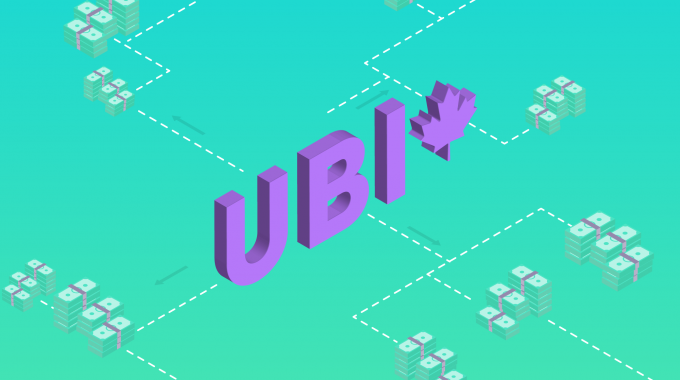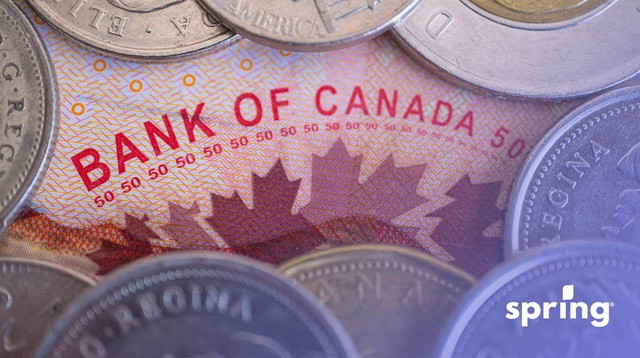As inequality grows and people further fall under the poverty line, governments are starting to treat universal basic income (UBI), or sometimes called guaranteed basic income (GBI), as a possible solution rather than a radical socialist welfare concept.
Of course, the concept of paying citizens a periodic income without any work requirement or means test certainly has its champions and detractors. Among its more famous supporters include Tesla boss Elon Musk, Facebook founder Mark Zuckerberg and U.S. presidential candidate Andrew Yang, who built his campaign around a UBI platform.
I
n Canada, universal basic income is starting to gain serious traction among federal parties. The Opposition’s New Democrats have been pitching the idea for years, and it would appear the minority ruling Liberals are ready to adopt this progressive policy. Does that mean Canadians are not far off from UBI becoming a reality? Perhaps. Let’s look at the pros and cons of UBI, and see what currently exists in terms of government income assistance.
What is Universal Basic Income?
According to the Basic Income Canada Network, a non-profit organization organized to promote a basic income guarantee policy, UBI can be defined as a basic income unconditionally provided by government that ensures everyone can meet basic needs and live with dignity regardless of their work status. The group claims such an income will provide financial security, freedom to spend income as one chooses, and create a foundation for health, well-being and better life.
The concept is not entirely new to Canada. In fact, a basic income experiment was conducted in in Manitoba in the 1970s. The project was called “Mincome” and its purpose was to assess the social impact of a guaranteed, unconditional annual income, including whether the program would create a disincentive to work for the recipients. One of the results of the project was a finding that it reduces stigma normally associated with other welfare programs.

How would UBI work in Canada?
There are generally two models of how a UBI would work in Canada. The first model would see everyone regardless of income receive the same basic amount. However, those with higher incomes would see that additional income more or less taxed away. This model is frequently called the demogrant model.
The other model is called Negative Income Tax (NIT) or refundable tax credit. This means that only individuals with an income that falls below a certain threshold would receive the financial aid, rather than the demogrant that initially goes to everyone. The Mincome project was based on a NIT taxation system.
Here’s an example of a universal basic income model, as proposed by the group UBI Works. A guaranteed minimum income of $24,000 for individuals and $34,700 for couples, while paying a “universal dividend” of $6,000 for all adults. It would claw back 50 cents for every $1 of employment income and 100% of income from other government transfers, excluding the Canada Child Benefit and the $6,000 dividend.
Regardless of the model, many argue UBI provides more freedom and economic autonomy than social assistance and welfare programs that demand means tests, time limits and other restrictions.
Opposition to UBI
There’s a reason most governments have avoided implementing a universal basic income policy – it costs a lot. It’s no small ask to give every citizen enough money to achieve some measure of financial freedom. Canada’s Parliamentary Budget Officer estimated the price tag for such a program could be anywhere from $47 billion to $98 billion, a sizable expenditure line on the annual budget.
Beyond price, some argue a UBI policy would ultimately be ineffective. The British Columbia government released an exhaustive report on the topic just recently, suggesting a taxation system would be misguided because as many as 14% of the country doesn’t even file taxes. The report also found no evidence that a UBI program would lead to an increase in the workforce. It concludes that it would be better to enhance pre-existing social programs than implementing guaranteed basic income.
Of course, there are also those who think UBI would be a disincentive to productivity. Conservative leader, Erin O’Toole recently called the idea an “expensive new program to pay people not to work.”
Could COVID-19 lead Canada to a Universal Basic Income?
The single most significant economic measure the government implemented at the outset of the COVID-19 pandemic was the Canadian Emergency Response Benefit, better known as CERB. It offered out-of-work Canadians a $2,000 cheque ($500/week) each month to weather the economic storms caused by COVID. Almost 9 million Canadians received the benefit.
The government showed little hesitancy in delivering this widespread cash injection, and the program proved to be hugely popular (and costly). This achievement signalled to UBI proponents that the time has come for universal basic income. But the reality is it’s not here yet, and it still won’t happen until at least after another federal election.








